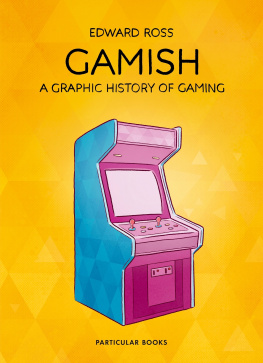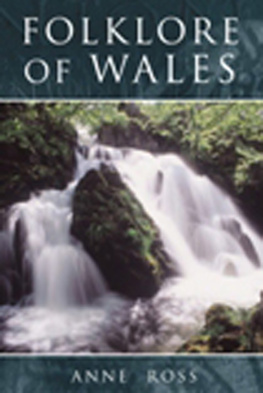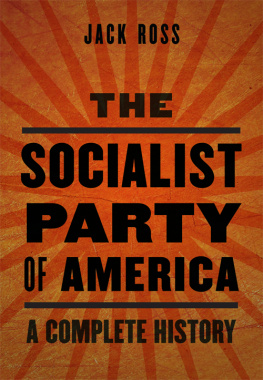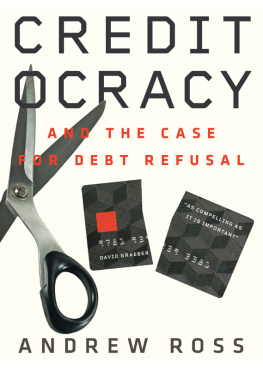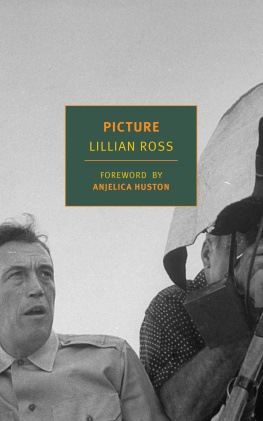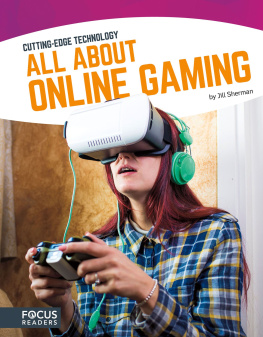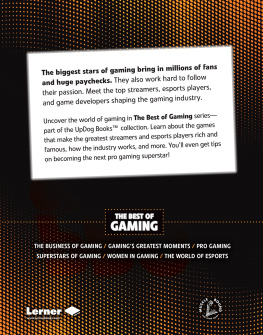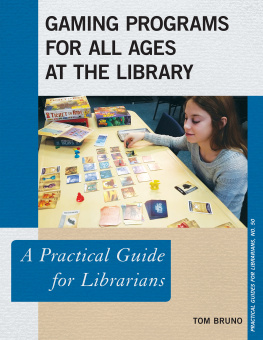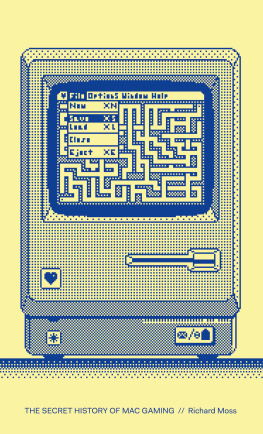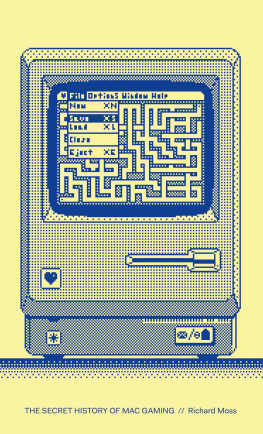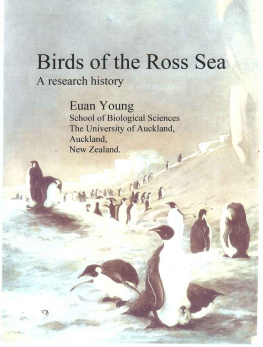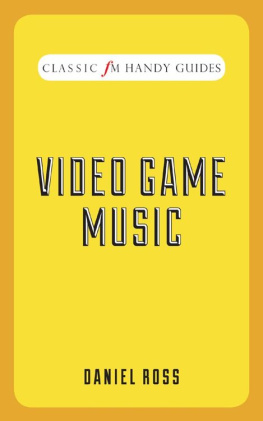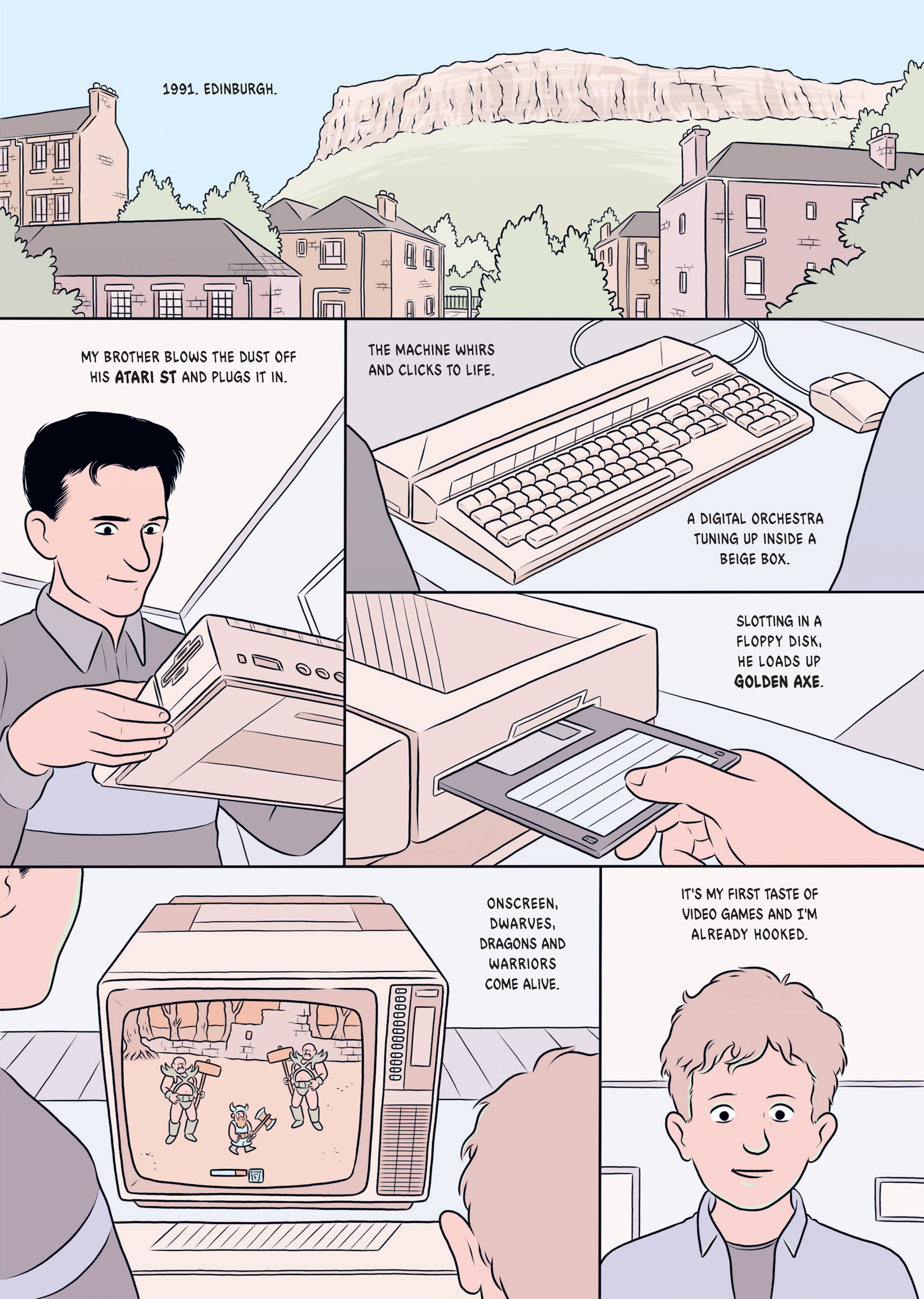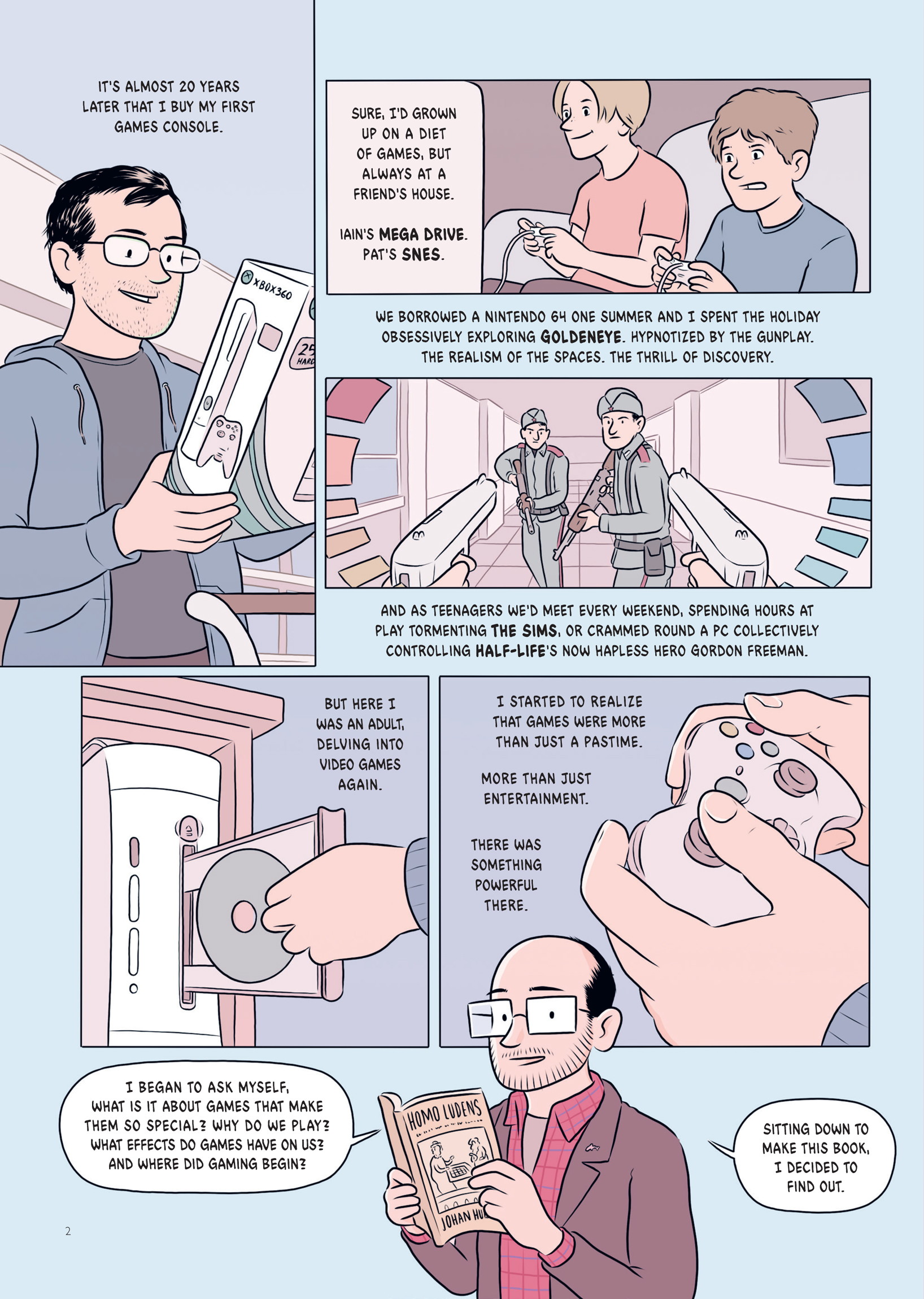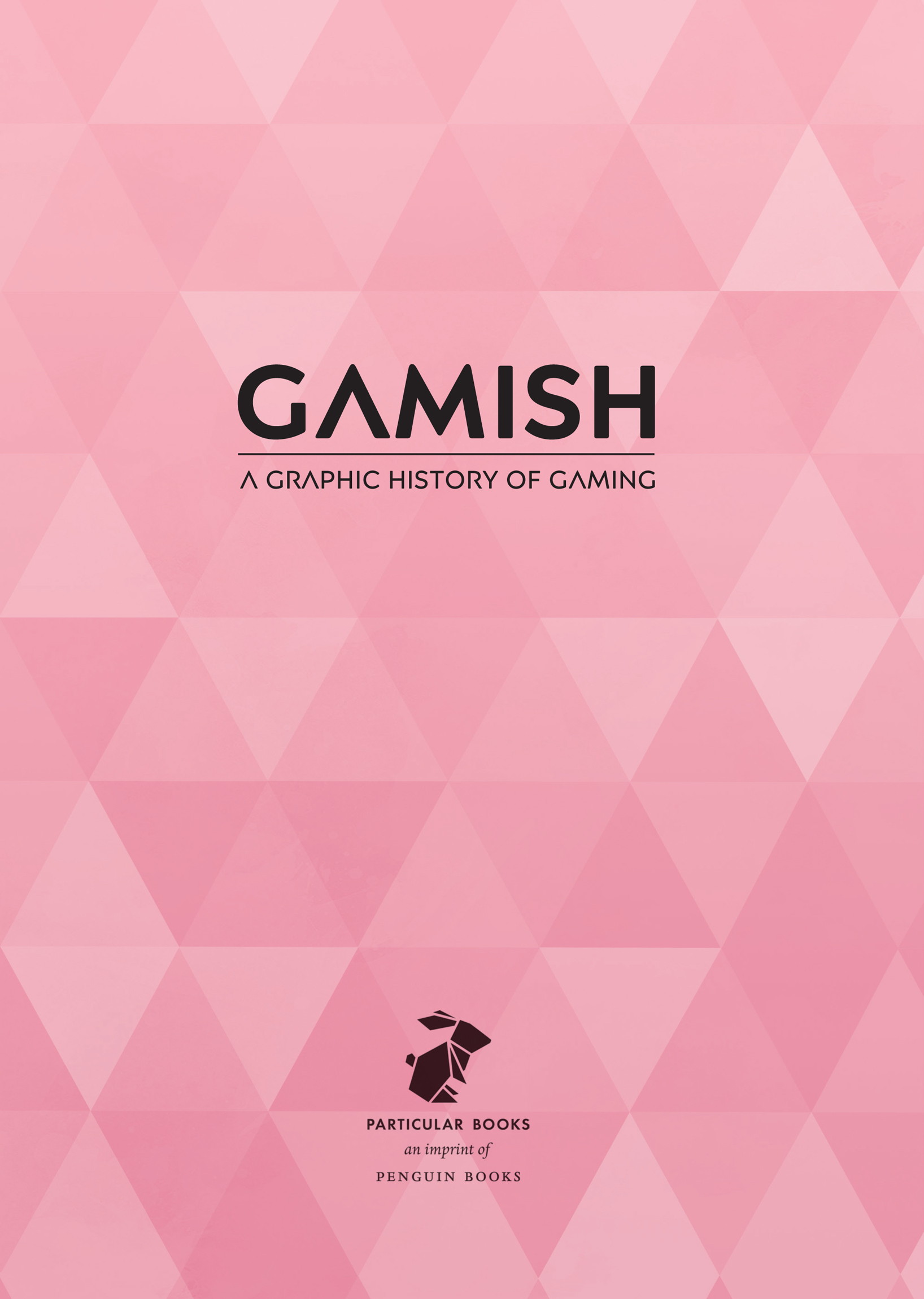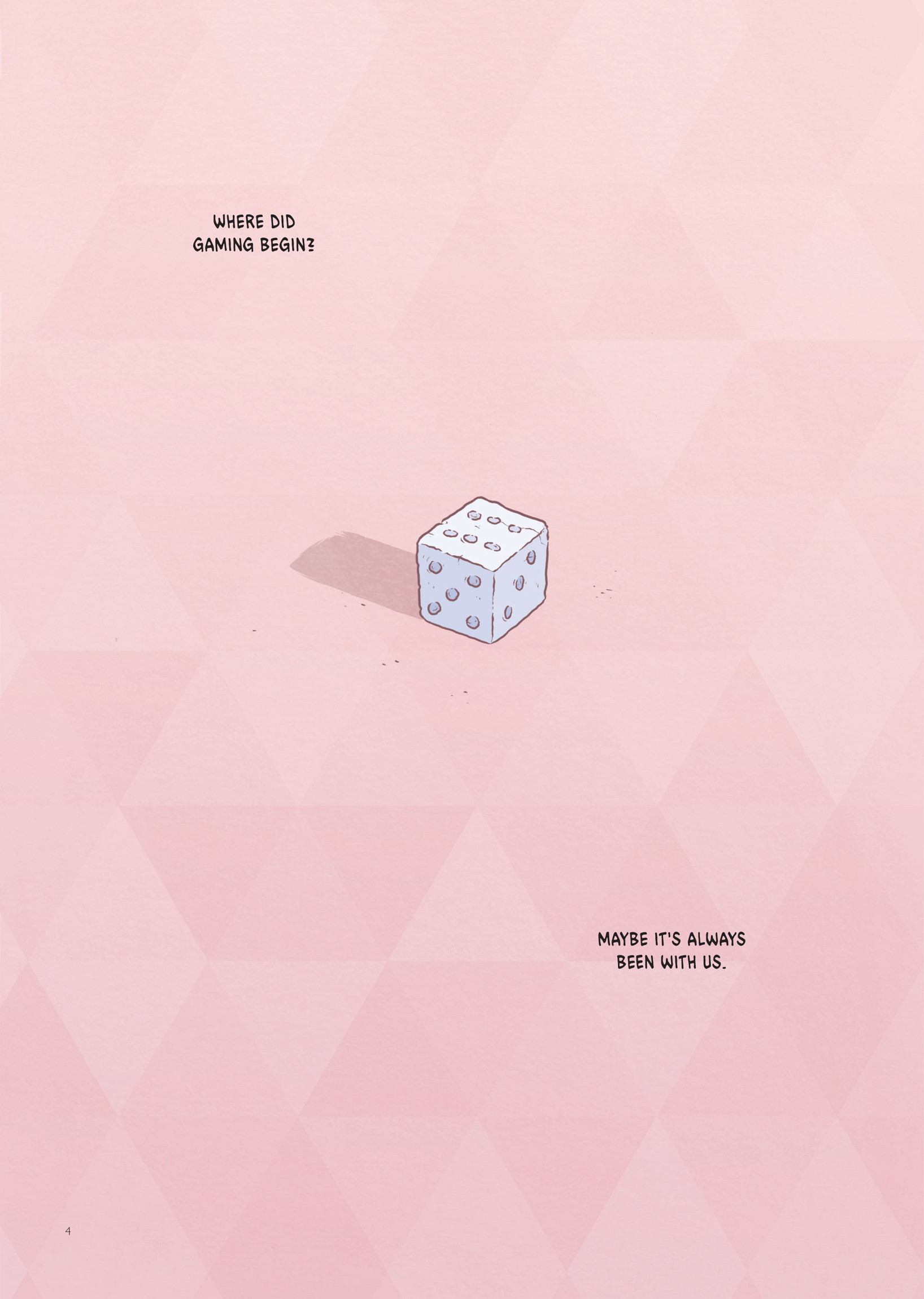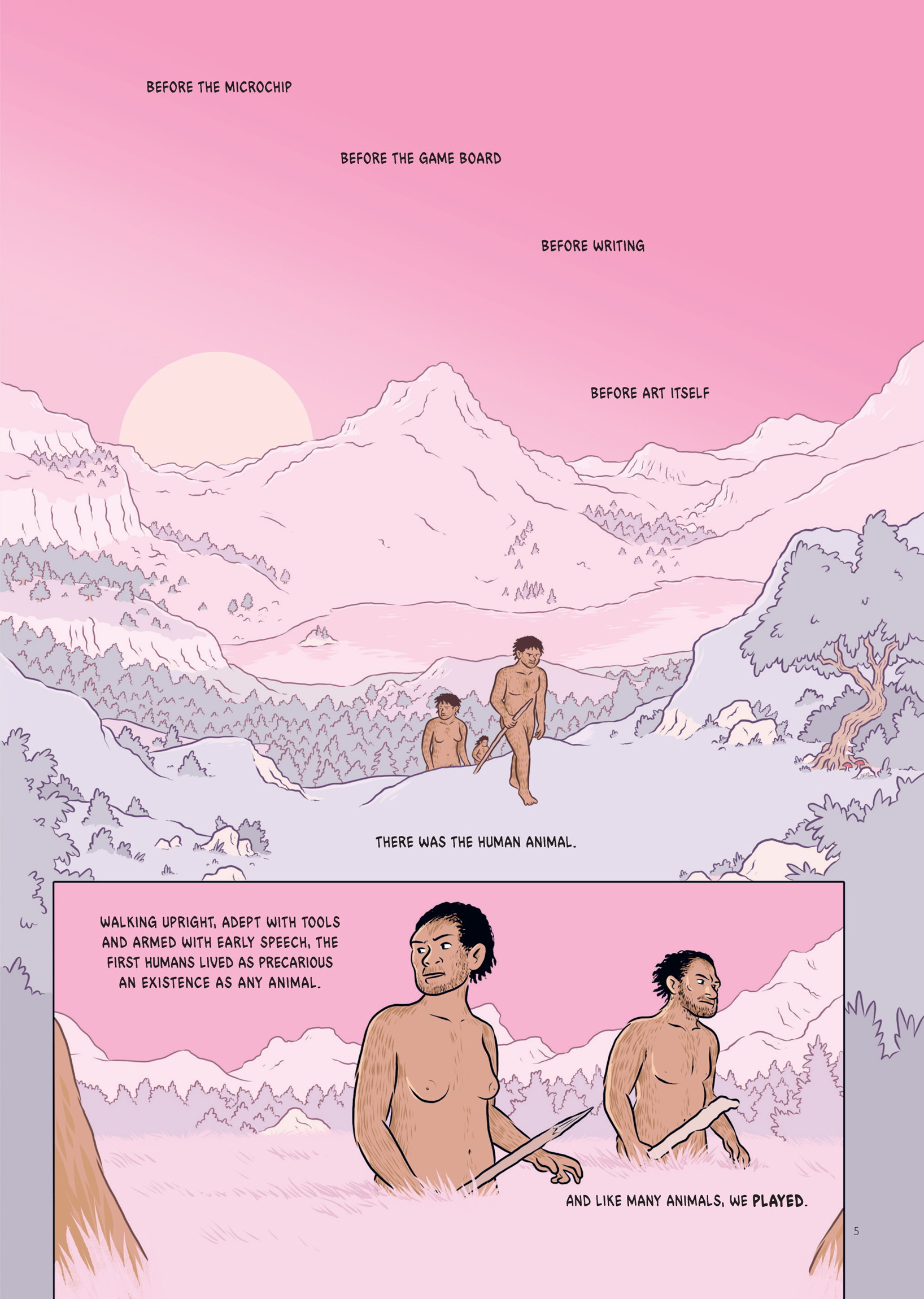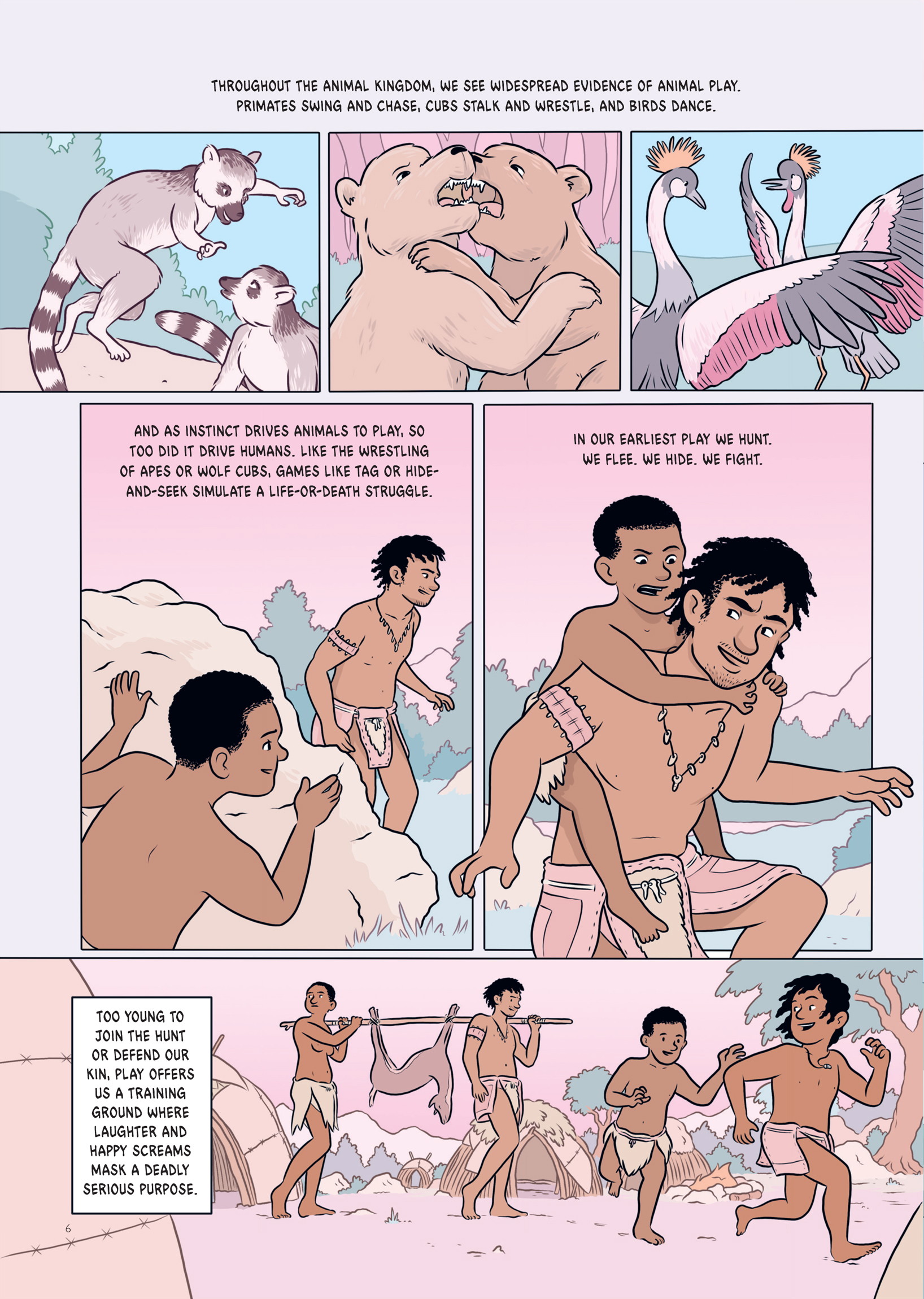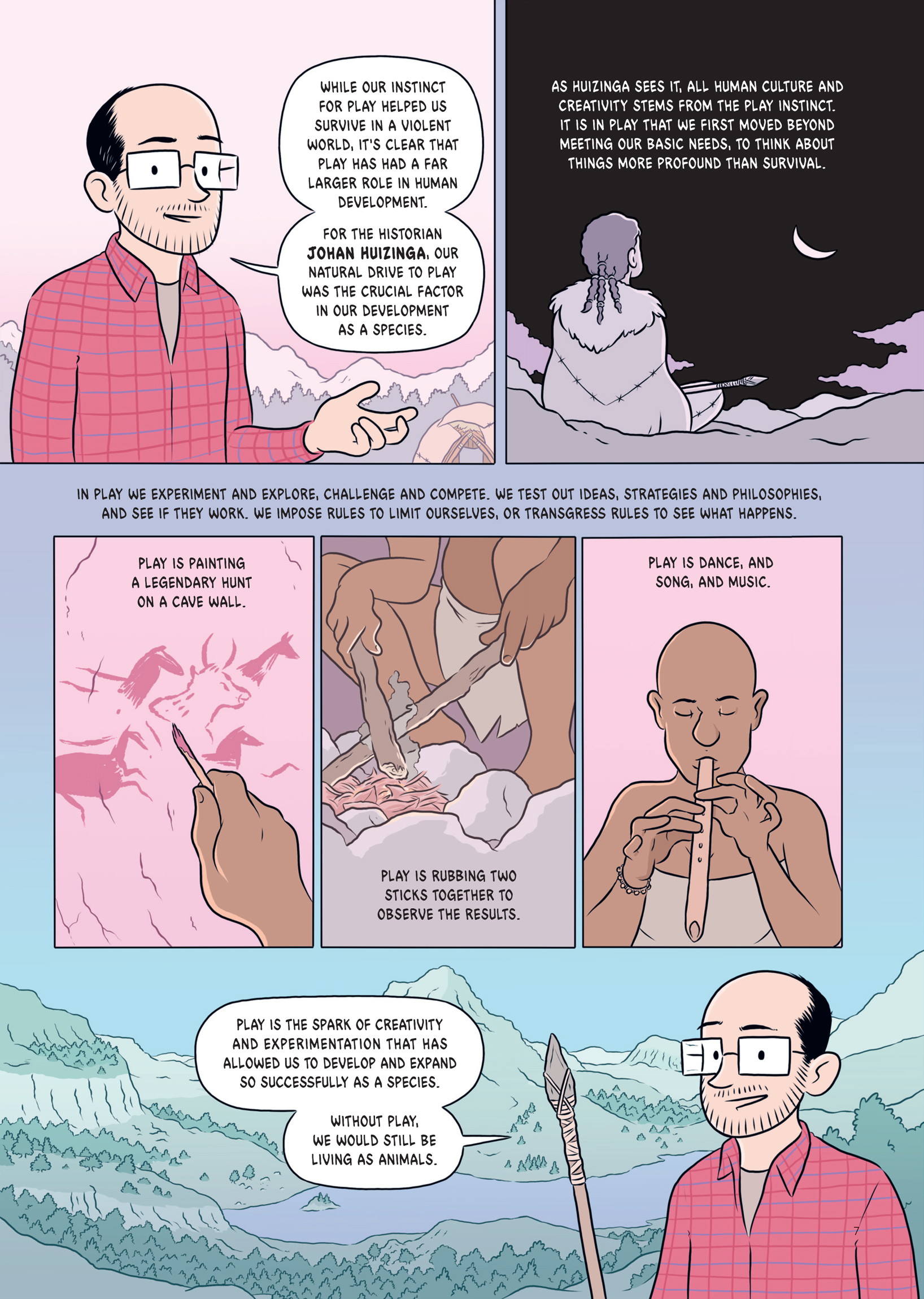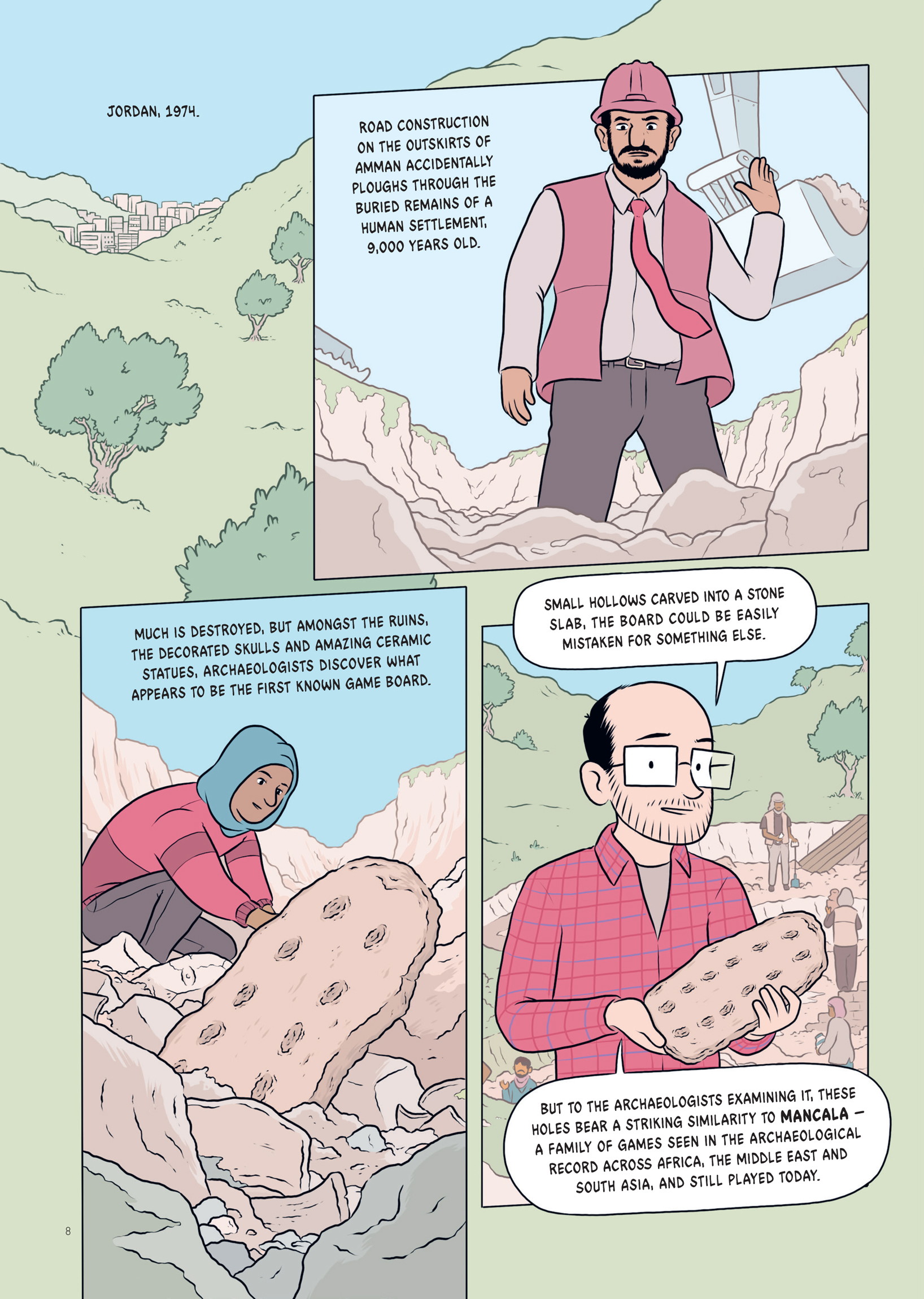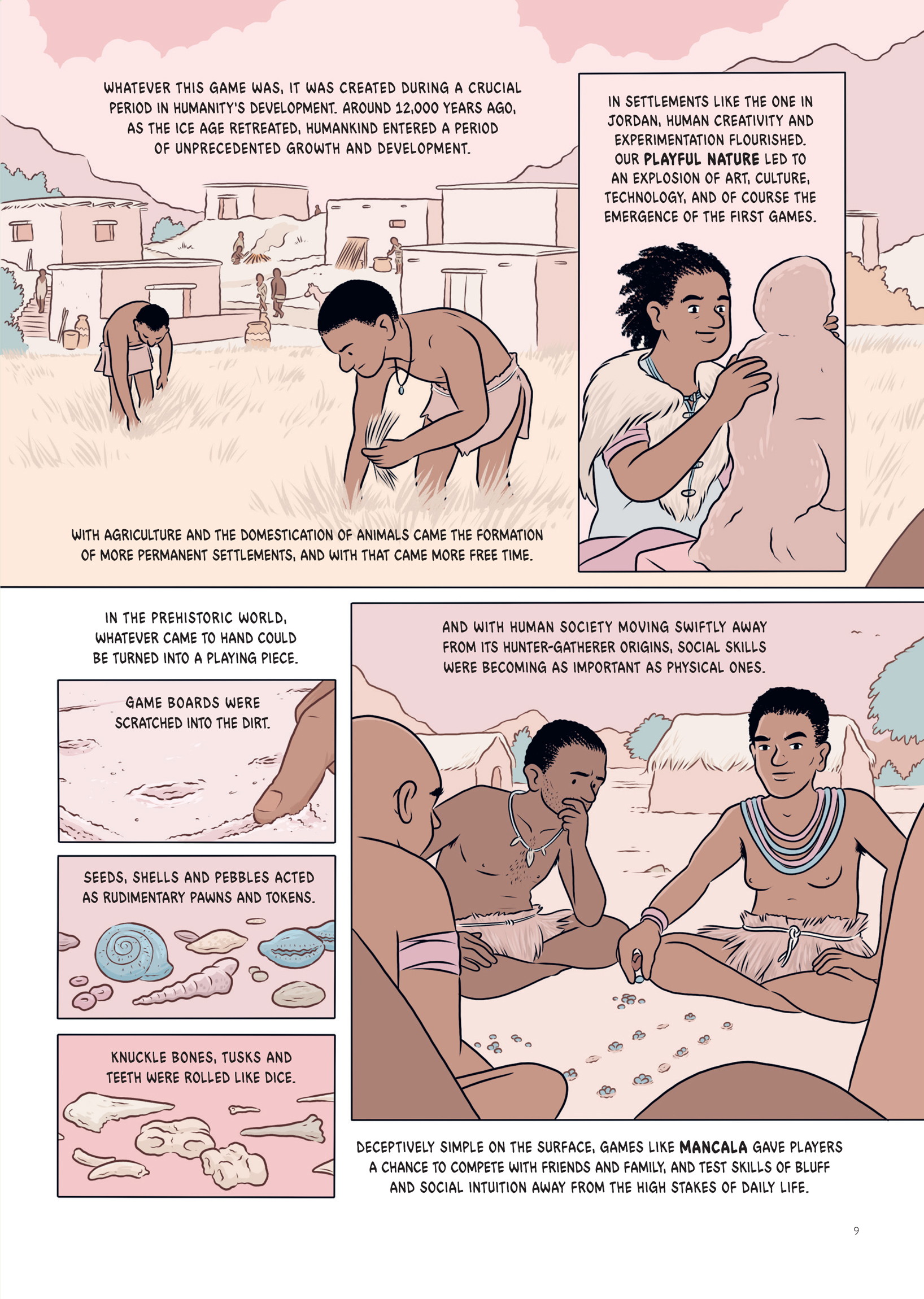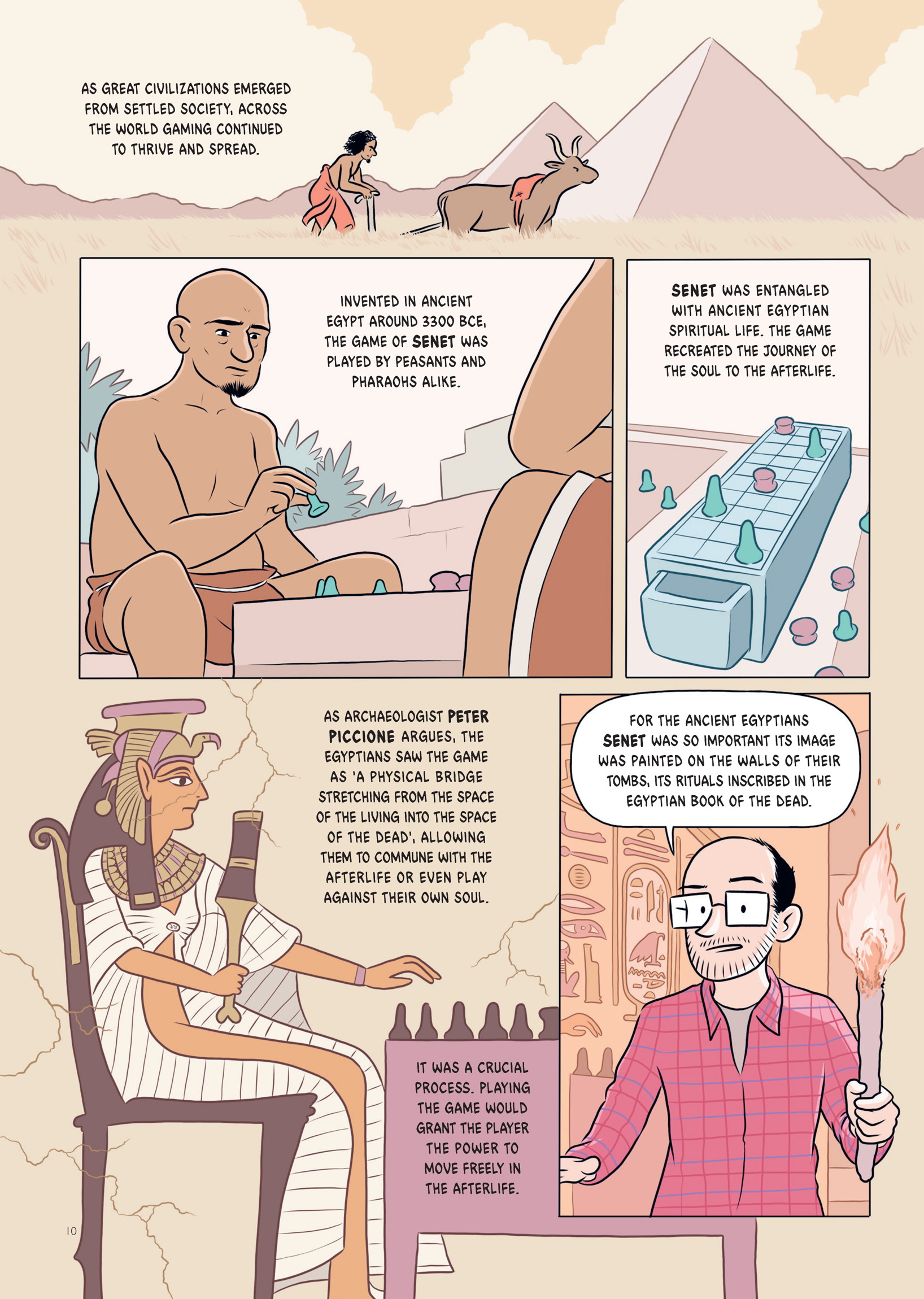1991. Edinburgh.
My brother blows the dust o his Ata ri ST and plugs it in.
The machine whirs and clicks t o life.
A digit al orchestra tuning up inside a beige box.
Sloing in a floppy disk, he loads up Golden Axe .
Onscreen, dwarves, dragons and warriors come alive.
its my first t aste of video games and Im already hooked .
its almost 20 years lat er tha t I buy my first games console.
Sure, Id grown up on a diet of games, but alwa ys at a friends house.
iains Mega Drive .
Pat s SNES .
We boowed a Nintendo 64 one suer and I spent the holida y obseivel y exploring GoldenEye . Hypnotized by the gunpla y.
The realism of the sp aces. The thri of discovery .
And as tnagers wed mt every wkend, spending hours a t pla y t ormenting The Sims , or craed round a PC coectivel y controing Half-Life s now haple hero Gordon Frman.
But here I was an adul t, del vi ng int o video games again.
I st ar ted t o realize that games were more than just a pastime.
There was something powerful there.
More than just entert ainment .
I began t o ask my se lf, wha t is it about games tha t make them so special? Why do we pla y? Wha t eect s do games ha ve on us?
And where did gaming begin?
Siing down t o make this bk,
I decided t o find out .
GA
M
isH
a graphic history of g a M ing
Where did gaming begin?
May be its alw ay s bn with us.
Before the microchip
before the game board
before writing
before art its elf
there was the human animal.
Walking upright , adep t with t oo ls and armed with earl y speech, the first humans lived as precarious an existence as any animal.
And like many animals, we play ed .
Throughout the animal kingdom, we s widespread evidence of animal pla y. prima tes swing and chase, Cubs st alk and wrestle, and birds dance.
And as instinct drives animals t o play , so t did it drive humans. Like the wrestling of apes or wolf cubs, games like T ag or Hide- and-S k simulat e a life-or -d eat h stru l e.
in our earliest pla y we hunt . We fl . We hide. We fight .
T yo ung t o join the hunt or defend our kin, pla y o ers us a training ground where laughter and ha y screams mask a deadl y serious purpose.
While our instinct for play helped us survive in a violent world, its clear tha t play has had a far larger role in human development .
For the hist or ian Johan Huizinga , our nat ural drive t o play was the crucial fact or in our development as a species.
in play we experiment and explore, cha e nge and compete. We test out ideas, stra te gies and philosophies, and s if they work. We impose rules t o limit oursel ves, or transgre rules t o s wha t ha ens.
Play is painting a legendary hunt on a ca ve wa .
Play is ru i ng two sticks t og ether t o observe the resul t s.
Play is dance, and
song, and music.
Play is the spark of crea ti vity and experi ment ati on tha t has a o wed us t o develop and expand so su e fu y as a species.
Without pla y, we would sti be living as animals.
As Huizinga s s it , a human cul tu re and creat ivit y stems from the pla y instinct . it is in pla y that we first moved bey on d m t ing our basic n d s, t o think about things more profound than surviva l.
Jordan, 1974.
Road construction on the outs kirts of Aan aident a y ploughs through th e buried remains of a human selement ,
9,000 years old.
Much is destroyed, but amongst the ruins, the decorat ed skus and amaz ing ceramic sta tu es, archaeologists discover wha t aears t o be the first known game board .
sma hoows carved int o a sto ne slab, the board could be easil y mist aken for something else.
But t o the archaeologist s examining it , these holes bear a striking similarit y t o Mancala - a famil y of games seen in the archaeological record acro Africa, the Mile East and South Asia, and still pla yed t oda y .
What ever this game was, it was crea te d during a crucial period in humanit y s development . Around 12,000 years ago, as the ice age retrea te d, humankind entered a period of unprecedented growth and development .
With agricul ture and the domestica tion of animals came the forma tion of more permanent selement s, and with tha t came more fr time.
in selements like the one in Jordan, human crea ti vity and experiment ati on flourished. Our pla yful na ture led t o an explosion of art , cul tu re, technology , and of course the emergence of the first games.
in the prehist or ic world, what ever came t o hand could be turned int o a pla ying piece.
Game boards were scra t ched int o the dirt .
Seeds, shells and pebbles acted as rudiment ary p a wns and t okens.
Knuckle bones, tusks and tth were roed like dice.
And with human societ y moving swiftl y a wa y from its hunter- gat herer origins, social skis were becoming as import ant as phy sical ones.
Decept ivel y simple on the surface, games like Mancala gav e play ers a chance t o compete with friends and famil y , and test skis of blu and social intuition a wa y from the high st akes of dail y life.
As great civiliza ti ons emerged from seled societ y , acro the world gaming continued to thrive and spread .
invented in Ancient Egypt around 3300 BCE, the game of Senet was play ed by peasants and Pharaohs alike.

